As Oliver Dowden steps up, is it time to return to the all-powerful party chairman?
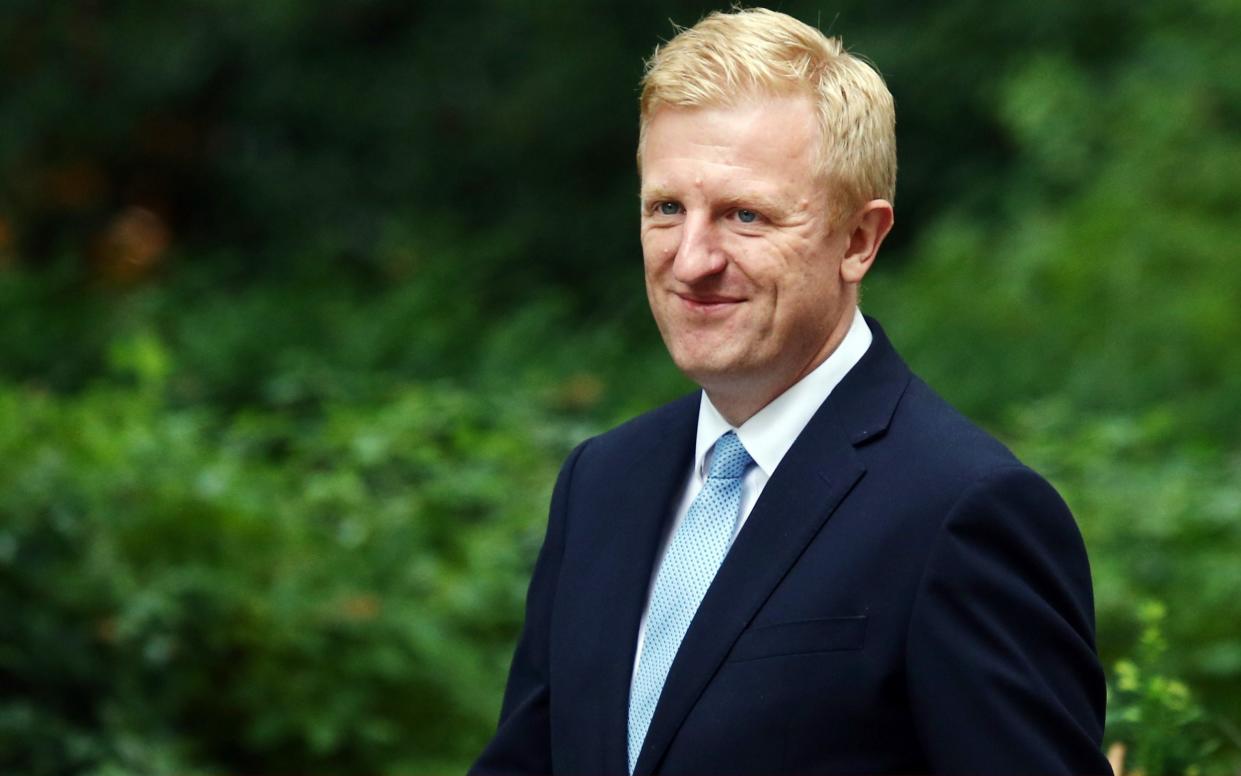
Tall, confident and charming, the Conservative MP for the Home Counties constituency of Hertsmere has been appointed party chairman to prepare for the next general election. State-school educated and from modest beginnings, he is in a pivotal position to help secure another term in office for the Prime Minister and further his own career.
This politician is Oliver Dowden, but it could just as well be Cecil Parkinson, who represented the same seat, in its various guises, and held the same post in the Thatcher government.
The similarities between the pair do not end there.
Dowden went to a comprehensive school: his father worked in a factory in Watford and his mother at a chemist in St Albans. Lord Parkinson, as he later became, attended a grammar school on passing his 11-plus and won a place to Cambridge University where he read English and law. His father was a warehouse worker and then a railwayman, a background that suited him in the post-patrician Thatcherite government of the 1980s since it was not dissimilar to her own.
Like many politicians of the time, Parkinson forged a successful career as an accountant and businessman before entering Parliament in 1970, whereas Dowden’s credentials are more familiar to modern ears – a stint at the Conservative Research Department after reading law, also at Cambridge, and then a few years in PR before working for David Cameron in No.10 and securing his seat in 2015.
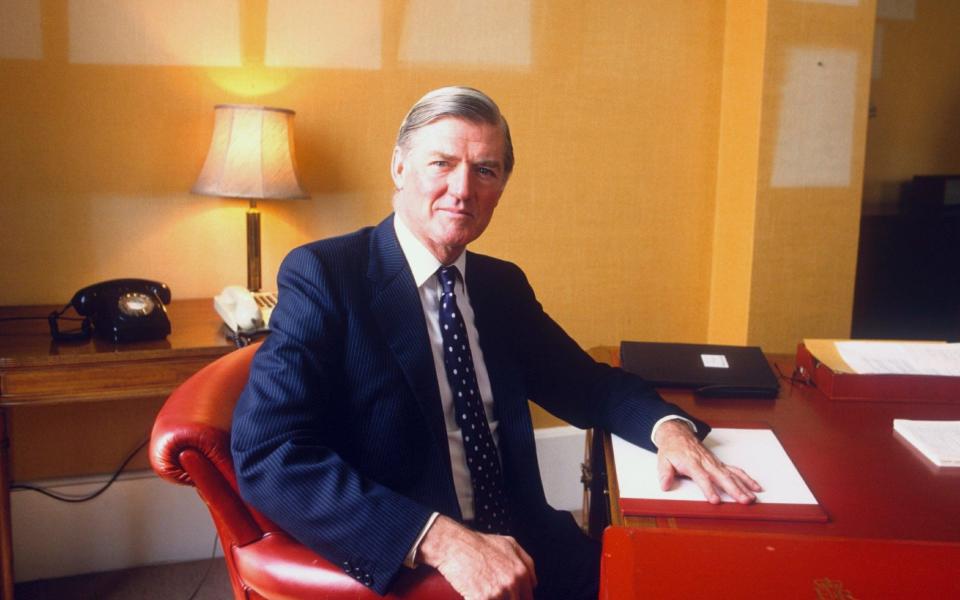
Another present-day phenomenon has been the rapid rise of Dowden, whereas Parkinson had to wait some 10 years for a government job, though the Tories were in opposition for most of the 1970s. He was a junior minister in Thatcher’s first government, showing the promise, flair and a matchless suavity of manner that quickly drew him to the attention of the PM. He was also a true believer and, in 1981, following Thatcher’s purge of the so-called “wets”, he was made party chairman.
This was in those days, and remained until relatively recently, a powerful role in any Conservative administration. Parkinson was so much at the centre of things that he was included in the Falklands war cabinet in 1982 and was lined up to be Foreign Secretary, before the disclosure of an adulterous affair brought his career to a halt.
Throughout the 1980s and 1990s, a succession of Tory party chairmen were appointed who were regarded as ‘big beasts’ and not just job-fillers. The post has been held down the years by some of the great names of Conservative politics – Neville Chamberlain, Viscount Hailsham, Rab Butler and Ian Macleod, who also, coincidentally, sat for the same seat as Dowden and Parkinson. Is there something in the Enfield water?
Back then, the first half of the Parliament tended to see the position occupied by middle-ranking ministers on their way up, such as Peter Brooke or John Gummer. But as an election came into view, the heavyweights were called to the colours.
Norman Tebbit was given the task of preparing for the 1987 contest, though this became a fraught task amid internal bickering over the direction of the campaign. At one point, Lord Young, who had been brought in amid wobbles in the ranks, squared up to Tebbit. He later recounted how he had grabbed the Chingford MP by the shoulder and told him: “Norman, listen to me – we’re about to lose this f---ing election.” Young’s pessimism was more than misplaced: Thatcher won a third term with a majority of more than 100.
Kenneth Baker became party chairman for the last few years of the Thatcher era before Chris Patten was brought in to secure an unlikely win for John Major in 1992. He lost his own seat in Bath in the process, but his subsequent career as Governor of Hong Kong, chairman of the BBC and chancellor of Oxford University suggests that was a blessing in disguise.
In opposition, the chairman’s job becomes less important and more low-profile, though Theresa May made a name for herself in 2002, during the dark years of the Blair government, by suggesting that the Tories were paying the price of being regarded as the “nasty party” in the eyes of many voters.
Since then, the role has been progressively downgraded to the point where it is hard to remember who has held the post. Dowden takes over from Amanda Milling, who was hardly a household name.
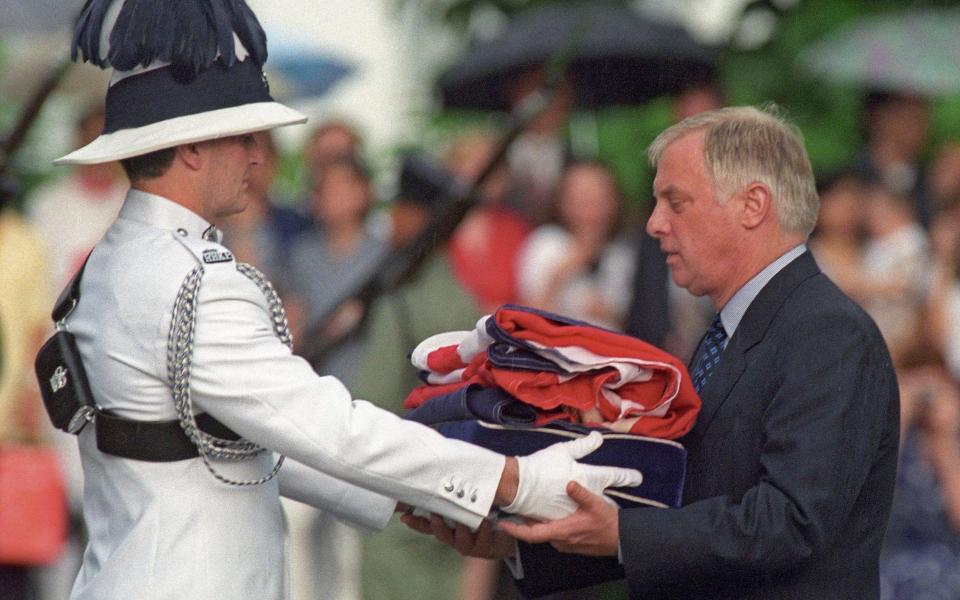
There have been 10 party chairmen since 2010, and even Westminster-watchers would struggle to name half of them. Moreover, there has been a tendency to split the role, as is, indeed, the case now. Dowden has to share the post with non-elected co-chairman Ben Elliott, a businessman and nephew of the Duchess of Cornwall. In the past he would more likely have been party Treasurer, like Lord McAlpine.
The diminution of what was once a crucial role for the party in government reflects the transfer of power and authority away from the grassroots to the centre. Once upon a time, the constituency parties were fiercely independent, ran their own fiefdoms, selected who they wished as candidates and needed to be carefully handled by the central machine.
This became to be seen as a problem when they chose, by and large, local people who were not considered representative of the population or diverse enough – ie, middle-class white men. The introduction of approved candidates lists has neutered the local parties and this extension of hierarchical control has, unsurprisingly, been accompanied by a huge drop in membership over the past 40 years.
The annual party conference once provided the platform for the membership to feel part of the affairs of state and have a pop at the leadership to boot. But these, too, have been lobotomised, turned into corporate PR junkets and held in cities like Manchester or Birmingham, where ordinary members are priced out by £200-a-night hotel costs. The days when £30 would cover a week in a Blackpool B&B in October have long gone, a sad reflection on the way party politics has lost touch with its roots.
It was in Blackpool in 1983 where nemesis came looking for Parkinson. He had not made it to Foreign Secretary but had been appointed Trade and Industry Secretary instead. The story about his affair with his secretary Sara Keays dominated the entire week, and while he looked to have ridden out the storm, the refusal of the story to die down forced his resignation. He returned to the government four years later as Energy Secretary, and was proud to point out that at least three of the companies he privatised became FTSE-listed.
Dowden, then, has big boots to fill, assuming that he has been put into Conservative HQ to perform a similar function. He will be the go-to Cabinet minister for TV and radio appearances, especially when things go wrong. He has been impressive as Culture Secretary and helps the Prime Minister prepare for his weekly question time appearances in the Commons, so has evidently impressed the boss.
Anyone would find it hard to match the old-school raffishness of Parkinson, but does Dowden have the wherewithal to emulate his distinguished predecessor and become an indispensable member of Johnson’s team? He has less than two years to make his mark.
Notable Conservative Party chairmen...
Neville Chamberlain
1930-1931
Put in post during a period of party infighting, despite conflict resolution not being his strongest suit
Lord Woolton
1946-1955
Churchill’s wartime food minister became a long-standing post-war chairman
Edward du Cann
1965-1967
Helped rebuild morale after it was shattered by the Profumo affair and Harold Wilson's 1964 election win
Anthony Barber
1967-1970
Rewarded with party stewardship after deftly managing Ted Heath's 1965 leadership win
William Whitelaw
1974–1975
A senior member of the Heath team who became Thatcher's strength and stay – because ‘every prime minister needs a Willie’
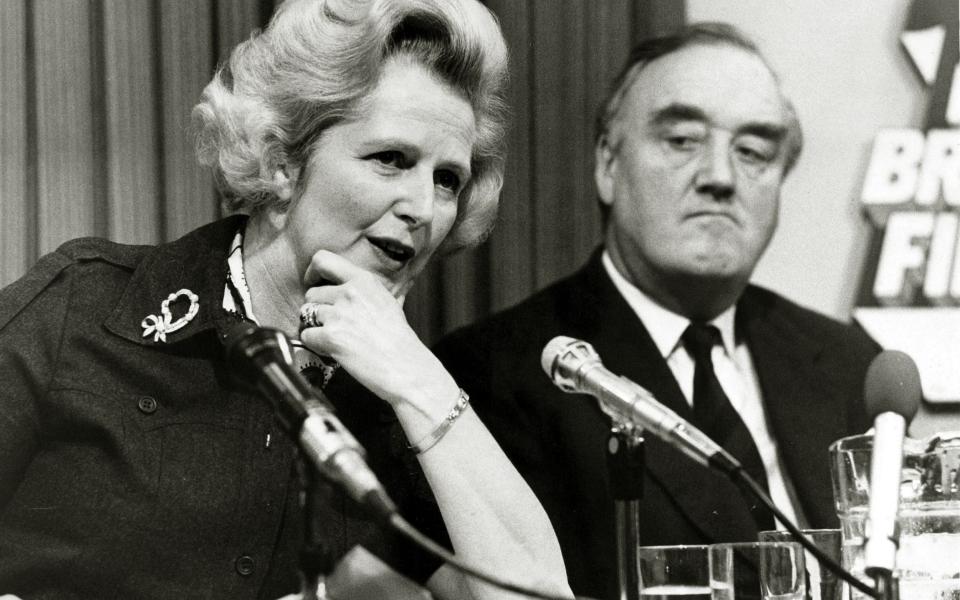
Cecil Parkinson
1981-1983, 1997-1998
Grammar school boy who became the party's most successful chairman, leading the 1983 election campaign. Returned to the role under William Hague.
Norman Tebbit
1985-1987
Paved the way for a third Thatcher election victory – the slogan, The Next Move Forward, was his – but left the Cabinet to care for his wife
Kenneth Baker
1989-1990
Steered the party during the Poll Tax, and up to the moment of Thatcher's downfall
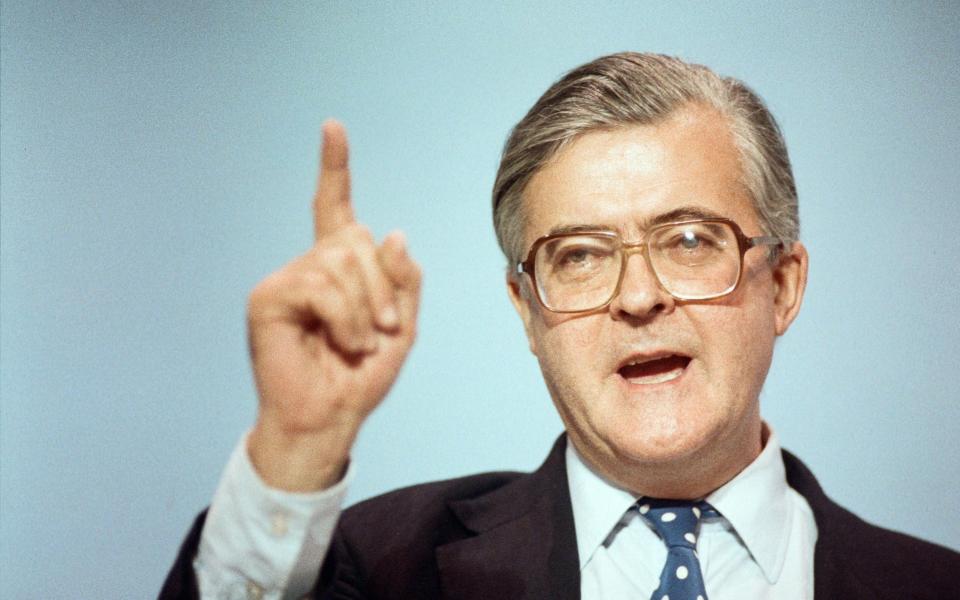
Chris Patten
1990-1992
Helped John Major to unexpected victory in 1992 – but lost his own Bath seat in the process
Michael Ancram
1998-2001
Put in charge of morale after Labour's 1997 landslide – and during the Tories’ lowest ebb
Theresa May
2002-2003
The kitten-heeled chairwoman telling conference they had become the “nasty party” did her prospects the world of good
...and the new incumbent
Oliver Dowden
2021
Former Culture Secretary turned co-chairman, alongside Ben Elliot, the Duchess of Cornwall’s nephew

 Yahoo News
Yahoo News 
